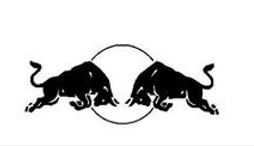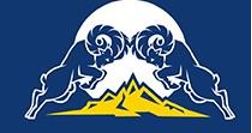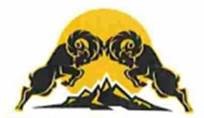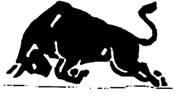Locations
Background
The claimant in this case was the manufacturer and distributor of the Red Bull energy drink. Red Bull had registered three figurative trade marks for non-alcoholic drinks, which showed:
- two charging bulls in front of a circle;
- a sun inside a blue and silver parallelogram; and
- a single charging bull.
- two charging rams, in front of a circle and above a yellow mountain;
- a silver cross on a blue background; and
- a single charging ram.
Red Bull had already obtained judgment in default against the second defendant in October 2019.
Comparison of the marks
A comparison of the Red Bull and Big Horn signs is shown below.
Unfair advantage: a free ride on the Red Bull
Kelyn Bacon QC, sitting as a Deputy Judge, found that there had been no infringement under Article 9(2)(b). It was unlikely that the disputed signs would give rise to confusion on the part of the average consumer either that a Big Horn drink was a Red Bull product or that the two products were economically linked. Relevant to this decision was the lower price of the Big Horn product: it would be much more likely that the average consumer would instead identify the Big Horn drinks as being a cheaper alternative to Red Bull's offering.
However, it was held that the first defendant was liable for infringement of the Red Bull marks under Article 9(2)(c). The third defendant was held liable as a joint tortfeasor. In fact, Bacon J went as far as stating that "[i]t is quite evident that Big Horn's signs have been designed so as to enable Big Horn to free-ride on the reputation of Red Bull, and to benefit from the very considerable marketing efforts of Red Bull to create a particular image associated with its trade marks."
In coming to this decision, the court made a global assessment, having regard to all factors including: the strength of reputation of the Red Bull marks, the degree of distinctive character of the marks, the similarity between the marks and the nature and proximity of the goods concerned. It was common ground between the parties that the Red Bull marks were well-known within the EU, and had been for many years. In addition, it was noted that the marks, which were visually and conceptually similar, were both used for energy drink products being sold in the same retail outlets. As such, the court held that the use of the Big Horn signs had taken unfair advantage of the distinctive character and reputation of Red Bull's marks.
Comment
This case provides another example of the challenges faced by popular and well-known brands when dealing with copycat companies providing a cheaper alternative. Whilst the judge concluded that average consumers of energy drinks would not be confused into thinking these two brands were associated, the salient point in this case was that "[t]he more immediately and strongly the mark is brought to mind by the sign, the greater the likelihood that the use of the sign is taking, or will take, unfair advantage of the distinctive character or reputation of the mark".
With special thanks to trainee, Ally Hague, for her contribution to this article.






